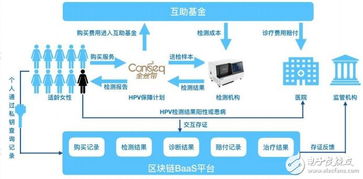Title: Understanding the Fundamental Characteristics of Blockchain Business
Blockchain technology has revolutionized various industries, offering unique features and capabilities that redefine traditional business processes. Understanding the essence of blockchain business is essential for grasping its transformative potential. Let's delve into the fundamental characteristics of blockchain business:
At the core of blockchain lies decentralization, which eliminates the need for a central authority to control data or transactions. Instead, data is distributed across a network of nodes, ensuring transparency and reducing the risk of manipulation or censorship. Decentralization fosters trust among participants, as no single entity has control over the entire system.

Blockchain transactions are recorded on a public ledger, visible to all participants in realtime. This transparency enhances accountability and reduces the possibility of fraud. Moreover, once data is added to the blockchain, it becomes virtually impossible to alter or delete, ensuring immutability. This feature is particularly valuable in industries like supply chain management, where maintaining an auditable record of transactions is crucial.
Blockchain employs cryptographic techniques to secure transactions and data. Each block is linked to the previous one through cryptographic hashes, creating a chain that is resistant to tampering. Additionally, consensus mechanisms such as Proof of Work (PoW) or Proof of Stake (PoS) ensure that malicious actors cannot manipulate the network without significant computational resources or stake.
Smart contracts are selfexecuting contracts with the terms of the agreement directly written into code. They automatically execute and enforce the terms of the contract when predefined conditions are met. Smart contracts enable automation of various processes, eliminating the need for intermediaries and reducing the risk of errors or delays.
Interoperability refers to the ability of different blockchain networks to communicate and interact with each other seamlessly. Achieving interoperability is crucial for realizing the full potential of blockchain technology, as it allows for the exchange of assets and data across disparate networks. Standards such as Interledger Protocol (ILP) and crosschain bridges facilitate interoperability.
Tokenization involves representing realworld assets or digital rights as tokens on a blockchain. These tokens can be traded or exchanged in a decentralized manner, enabling fractional ownership and liquidity. Tokenization has significant implications for asset management, fundraising (through Initial Coin Offerings or Security Token Offerings), and creating new economic models.
Scalability remains a challenge for blockchain technology, particularly in public networks like Bitcoin and Ethereum. However, various solutions, such as sharding, sidechains, and layer 2 protocols (e.g., Lightning Network), aim to improve scalability and enhance transaction throughput without compromising security.
Blockchain networks require governance mechanisms to make decisions about protocol upgrades, consensus changes, and dispute resolution. Governance models vary depending on the type of blockchain (public, private, consortium) and can be onchain (governed by smart contracts) or offchain (involving human stakeholders).
In conclusion, the essence of blockchain business encompasses decentralization, transparency, security, automation through smart contracts, interoperability, tokenization, scalability, and governance. Embracing these fundamental characteristics can unlock new opportunities and drive innovation across diverse industries.
标签: 区块链的本质和特点 区块链业务的本质特征包括 区块链中最突出的本质特征 区块链业务的本质特征是 区块链基本特点







